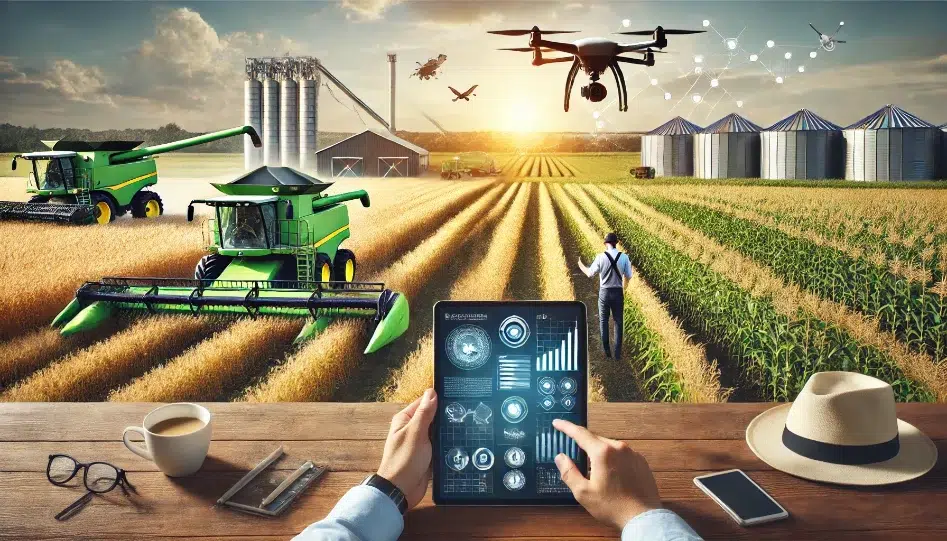The landscape of entrepreneurship is undergoing a seismic shift as technology continues to redefine how businesses operate. From the rise of digital platforms to the implementation of artificial intelligence (AI) and data analytics, the impact of technology is profound and far-reaching. As entrepreneurs harness these innovations, various industries are being transformed, leading to new opportunities, increased efficiency, and enhanced customer experiences. This article explores the ways technology is changing entrepreneurship and the diverse industries that will be significantly affected.
Table of Contents
E-Commerce: A New Era of Retail

E-commerce has emerged as one of the most prominent examples of technology reshaping entrepreneurship. Platforms such as Shopify, Amazon, and Etsy enable entrepreneurs to reach global markets without the need for a physical storefront. The convenience of online shopping, coupled with advancements in payment processing and logistics, has made it easier than ever for small businesses to thrive in the digital realm.
The COVID-19 pandemic accelerated the growth of e-commerce, forcing many brick-and-mortar businesses to adapt or face closure. Entrepreneurs have leveraged social media platforms for marketing, utilizing targeted advertising to reach specific demographics. With the integration of augmented reality (AR), customers can virtually try products before purchasing, enhancing the shopping experience and reducing return rates.
Fintech: Revolutionizing Financial Services
Financial technology, or fintech, is another area where technology is radically altering entrepreneurship. Traditional banking systems are being disrupted by innovative solutions that offer faster, more accessible financial services. Entrepreneurs can now utilize digital wallets, peer-to-peer lending platforms, and crowdfunding sites to secure funding and manage their finances more effectively.
For instance, platforms like Square and PayPal enable small businesses to accept payments seamlessly, while companies like Stripe offer robust payment processing solutions for online businesses. Additionally, crowdfunding sites like Kickstarter and Indiegogo provide entrepreneurs with an alternative to traditional venture capital, allowing them to raise funds directly from consumers who believe in their ideas.
The democratization of financial services is empowering entrepreneurs across various sectors, enabling them to start businesses with lower initial investments and access to critical financial resources.
Artificial Intelligence and Automation: Enhancing Operational Efficiency
Artificial intelligence and automation are increasingly becoming integral components of entrepreneurial ventures. From customer service chatbots to AI-driven data analytics, these technologies streamline operations, improve decision-making, and enhance customer experiences.
In industries such as retail, AI can analyze consumer behavior to predict trends and personalize marketing efforts. Chatbots equipped with natural language processing can handle customer inquiries 24/7, reducing the need for extensive customer service teams. This not only cuts operational costs but also improves customer satisfaction by providing immediate responses.
Automation tools are transforming industries like manufacturing and logistics. Robotics and automated assembly lines increase production efficiency, while inventory management systems track stock levels in real time, reducing waste and optimizing supply chains. Entrepreneurs can focus on strategic growth initiatives rather than being bogged down by repetitive tasks.
Agriculture: Innovation in Farming Practices

The agricultural sector is also experiencing significant technological transformation, impacting farming practices and overall productivity. Precision agriculture, which utilizes GPS, drones, and IoT devices, allows farmers to monitor crop health, soil conditions, and resource usage more effectively. This leads to increased yields and sustainable farming practices.
Innovations in biotechnology and genetic engineering are also contributing to enhanced crop resilience and productivity. For instance, genetically modified organisms (GMOs) can be designed to resist pests or tolerate extreme weather conditions, helping farmers adapt to the challenges posed by climate change. As technology continues to evolve, the agricultural sector will see increased efficiency and sustainability.
Advertising: A Digital Shift in Marketing Strategies
Technology is reshaping advertising and marketing in ways previously unimaginable. The advent of social media platforms and digital marketing tools has transformed how businesses reach and engage their target audiences. Entrepreneurs can now use targeted advertising to connect with consumers based on their interests, behavior, and demographics, making campaigns more effective.
Data analytics allows businesses to measure the effectiveness of their marketing efforts in real-time, enabling them to adjust strategies on the fly. Search engine optimization (SEO) and content marketing are essential for online visibility, allowing entrepreneurs to attract organic traffic and build brand awareness.
Furthermore, the use of influencer marketing has skyrocketed, with brands collaborating with social media personalities to reach new audiences authentically. As technology continues to evolve, entrepreneurs will need to stay ahead of trends in digital advertising to effectively capture consumer attention in an increasingly crowded marketplace.
Remote Work and Collaboration Tools: Redefining Work Culture
The rise of remote work technologies has revolutionized how entrepreneurs manage teams and collaborate. Tools like Zoom, Slack, and Asana facilitate communication and project management across geographically dispersed teams, allowing for flexibility and work-life balance.
This shift in work culture is particularly advantageous for startups and small businesses, which often operate with limited resources. Entrepreneurs can tap into a global talent pool without the constraints of geographical location, enabling them to find the best talent for their specific needs.
Moreover, remote work technology reduces overhead costs associated with maintaining physical office spaces. Entrepreneurs can allocate resources to growth and innovation rather than traditional office expenses, fostering a culture of agility and adaptability.
Data Analytics: Driving Informed Decision-Making
In today’s data-driven world, entrepreneurs have access to a wealth of information that can inform their business strategies. Data analytics tools enable entrepreneurs to gather insights into customer preferences, market trends, and operational efficiency.
By analyzing data, entrepreneurs can make informed decisions that enhance profitability and growth. For instance, customer relationship management (CRM) systems help businesses track customer interactions and preferences, allowing for personalized marketing campaigns that resonate with target audiences.
Industries such as healthcare are leveraging data analytics to improve patient care and streamline operations. Entrepreneurs in health tech can use data to identify patterns and improve service delivery, resulting in better health outcomes.
The Gig Economy: Empowering Independent Entrepreneurship
Technology has also played a pivotal role in the rise of the gig economy, enabling individuals to monetize their skills and talents on their own terms. Platforms like Uber, Airbnb, and Fiverr allow entrepreneurs to offer services and products directly to consumers without the need for a traditional business structure.
This shift empowers independent entrepreneurs to create flexible work arrangements and pursue their passions. As more individuals embrace freelancing and side hustles, industries ranging from hospitality to transportation and creative services are being reshaped by the gig economy.
The Technological Transformation
The technological revolution is transforming entrepreneurship across multiple industries, creating new opportunities and redefining traditional business models. From e-commerce and fintech to AI, remote work, and data analytics, entrepreneurs are leveraging innovative technologies to enhance efficiency, improve customer experiences, and drive growth.
As technology continues to evolve, entrepreneurs must remain adaptable and open to change, harnessing the power of innovation to stay competitive in an ever-changing landscape. The future of entrepreneurship is bright, driven by the transformative potential of technology, which promises to reshape industries and empower the next generation of business leaders. Embracing this revolution is not just an option; it is essential for success in today’s dynamic economy.

Magdalena Polka is a Business Solution Designer and an Information Technology / Project Management consultant and author with over 15 years of software development, management and project management experience.















